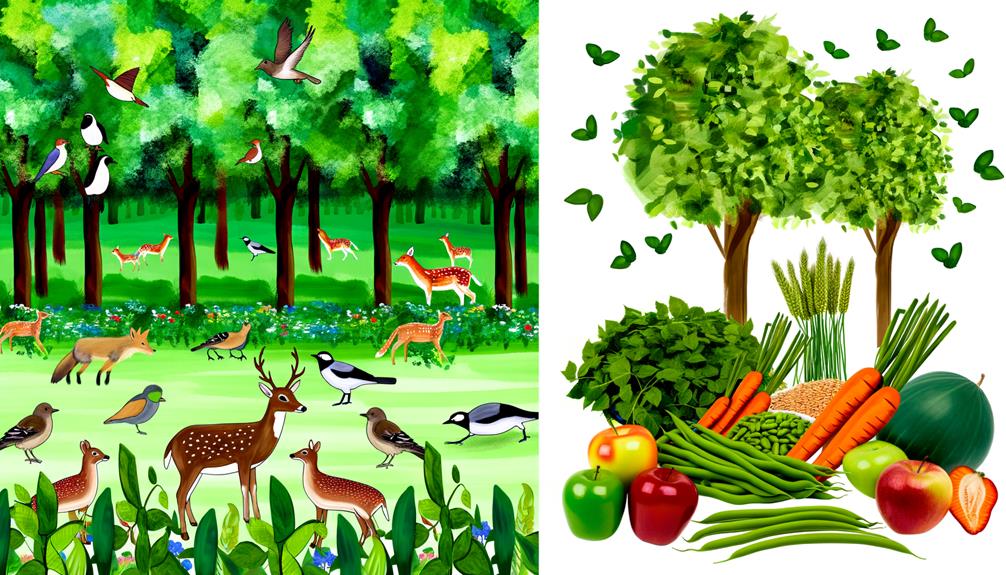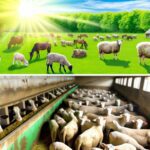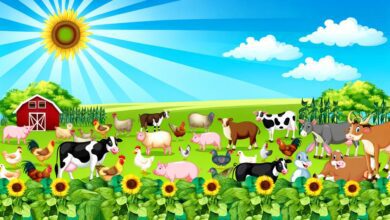You might think that your individual dietary choices have little impact on global animal conservation efforts, but the ripple effects of adopting a meat-free diet extend far beyond your own health. By choosing plant-based meals, you’re actively participating in a cultural shift that values the ethical treatment of animals and recognizes the critical role livestock production plays in habitat destruction. It’s not just about the welfare of farm animals; it’s about the countless species threatened by the deforestation and pollution driven by a meat-centric food system. A meat-free diet isn’t a panacea for all conservation challenges, but it’s a tangible action you can take to reduce demand and alleviate some of the pressures on our planet’s ecosystems. As we explore the nuances of how a plant-based lifestyle contributes to the broader conservation conversation, consider the far-reaching implications your fork has on forests, species diversity, and the very fabric of life on Earth.
Key Takeaways
- A meat-free diet contributes to the shift towards valuing the welfare of farmed animals and recognizing the high cost of livestock production on animal welfare.
- Choosing a meat-free diet helps combat the climate crisis by reducing greenhouse gas emissions, addressing the gases released through animal waste and manure management.
- Adopting a meat-free diet supports the conservation of ecosystems and biodiversity by respecting animal welfare and reducing habitat destruction caused by clearing land for animal agriculture.
- A meat-free diet promotes sustainable water use by reducing water consumption in animal production and encouraging efficient water use in agriculture through modern irrigation techniques.
Reducing Demand for Livestock
Cutting back on meat consumption isn’t just a personal health choice—it’s a collective step towards honoring our planet’s ecosystems and the myriad forms of life they support. When you choose to reduce your demand for meat, you’re contributing to a shift that allows for the humane treatment of farmed animals, recognizing their intrinsic value and right to welfare. Livestock production, driven by the high demand for meat, comes at a steep cost to these animals, often subjecting them to industrialized farming practices that prioritize efficiency over ethical concerns.
Embracing a plant-based diet does more than just align with a compassionate ethos; it’s a direct action against the climate crisis. The surge in greenhouse gas emissions from raising livestock is a known accelerant of global warming. By reducing meat consumption, you’re actively cutting down on these emissions. Moreover, your choice helps to combat deforestation—a consequence of clearing land for animal agriculture—and supports wildlife conservation efforts.
Mitigating Habitat Destruction
By choosing plant-based options, you’re not only respecting animal welfare but also combating the destruction of vital ecosystems that all forms of life depend on. The relentless pursuit of meat has led to an alarming rate of habitat destruction, pushing countless wild animals to the brink of extinction. Your decision to embrace plant-based eating is a conscientious stand against the relentless encroachment on natural habitats that the current food system necessitates.
Eating less meat is directly linked to conserving the spaces that animals call home. It means fewer forests are razed for pastureland, allowing biodiversity to flourish and ecosystems to regenerate. By reducing your meat intake, you’re actively participating in a global shift that helps animals and mitigates climate change by preserving the lungs of our planet—our forests.
Moreover, a plant-based diet sets the stage for less intensive farming methods. This approach to agriculture promotes a harmonious coexistence with wildlife, rather than displacing them. It’s a heartfelt contribution to a future where food and conservation go hand in hand. In essence, your plate becomes a powerful tool for nurturing the planet, protecting its diverse inhabitants, and fostering a food system that serves the greater good.
Lowering Greenhouse Gas Emissions
Embracing a plant-based diet emerges as a key strategy in reducing the greenhouse gas emissions that livestock farming notoriously produces. By choosing to eat less meat, especially red meat, you make a direct impact on the climate. The production of animal products isn’t just about the land they require; it’s also about the gases they release. Methane, a potent greenhouse gas, is significantly emitted through animal waste. Nitrous oxide, another climate-altering gas, is associated with their manure management and the fertilizers used for feed crops.
Switching to plant-based diets addresses these concerns at their core. Food production involving plants typically results in lower greenhouse gas emissions, making it a more climate-friendly option. When you decide to reduce your consumption of animal products, you’re not only standing up for animal conservation, but you’re also contributing to a broader ethical movement. This choice supports a system that places less strain on our planet, paving the way for a healthier environment.
Your dietary shift helps slow down climate change by minimizing the demand for livestock farming. Each plant-based meal is a step towards a more sustainable world where we live in harmony with nature’s precious resources.
Conserving Water Resources
As you reduce your meat intake to benefit the climate, consider how conserving water also plays a crucial role in protecting our planet’s ecosystems. Animal production is a heavy consumer of water, from the fields where feed crops are grown to the facilities where livestock are raised. By choosing plant-based foods, you’re supporting a more sustainable use of our precious water resources.
Here are a few ways you can help:
- Embrace Plant-Based Meals: Eating less meat means less water is required for feed crops.
- Advocate for Efficient Water Use in Agriculture: Encourage the adoption of modern irrigation techniques that minimize waste.
- Support Food Innovations: Back research into plant-based diets that offer maximum nutrition with minimal water footprint.
Promoting Biodiversity Preservation
Reducing meat consumption not only alleviates pressure on water resources but also serves as a critical step toward preserving our planet’s rich tapestry of life. By choosing to cut back on meat, you’re contributing to a vital shift that can save habitats and species worldwide. In the United States alone, billions of animals are raised for food annually. This massive demand leads to deforestation and habitat loss, threatening the very existence of countless wildlife species.
Adopting plant-based healthy diets is more than a personal health choice; it’s an ethical commitment to foster biodiversity. You have the power to raise awareness about the critical link between reducing food derived from animals and the rise in global biodiversity. As individuals and communities realize the profound impact of their dietary choices, they can unite in a movement that safeguards ecosystems and the multitude of lives they support.
Every meal devoid of meat is a step towards reviving our natural world. It’s not just about saving 39 species or even 39,000; it’s about sustaining the intricate balance of our biosphere. When you embrace a meat-free diet, you’re not just serving yourself — you’re serving the future of our planet.
Frequently Asked Questions
How Does Going Meat Free Help the Environment?
By going meat-free, you’re reducing land degradation, cutting water usage, and lowering greenhouse emissions. You’re also fighting biodiversity loss, aiding deforestation reduction, decreasing methane, improving energy efficiency, and enhancing pollution control for a healthier planet.
What Are the Benefits of the Animal Free Diet?
You’ll find plant-based nutrition furthers ethical eating, boosts health improvements, and avoids cruelty. Embracing sustainable living through resource conservation, you safeguard biodiversity while enjoying dietary diversity, serving not just yourself, but the planet too.
What Are the Benefits of Eating Meat Free?
You’ll find that ditching meat can boost your heart health, enhance energy levels, and diversify your cuisine. It’s ethical eating that benefits weight management, allergy avoidance, and nurtures your gut microbiome.







